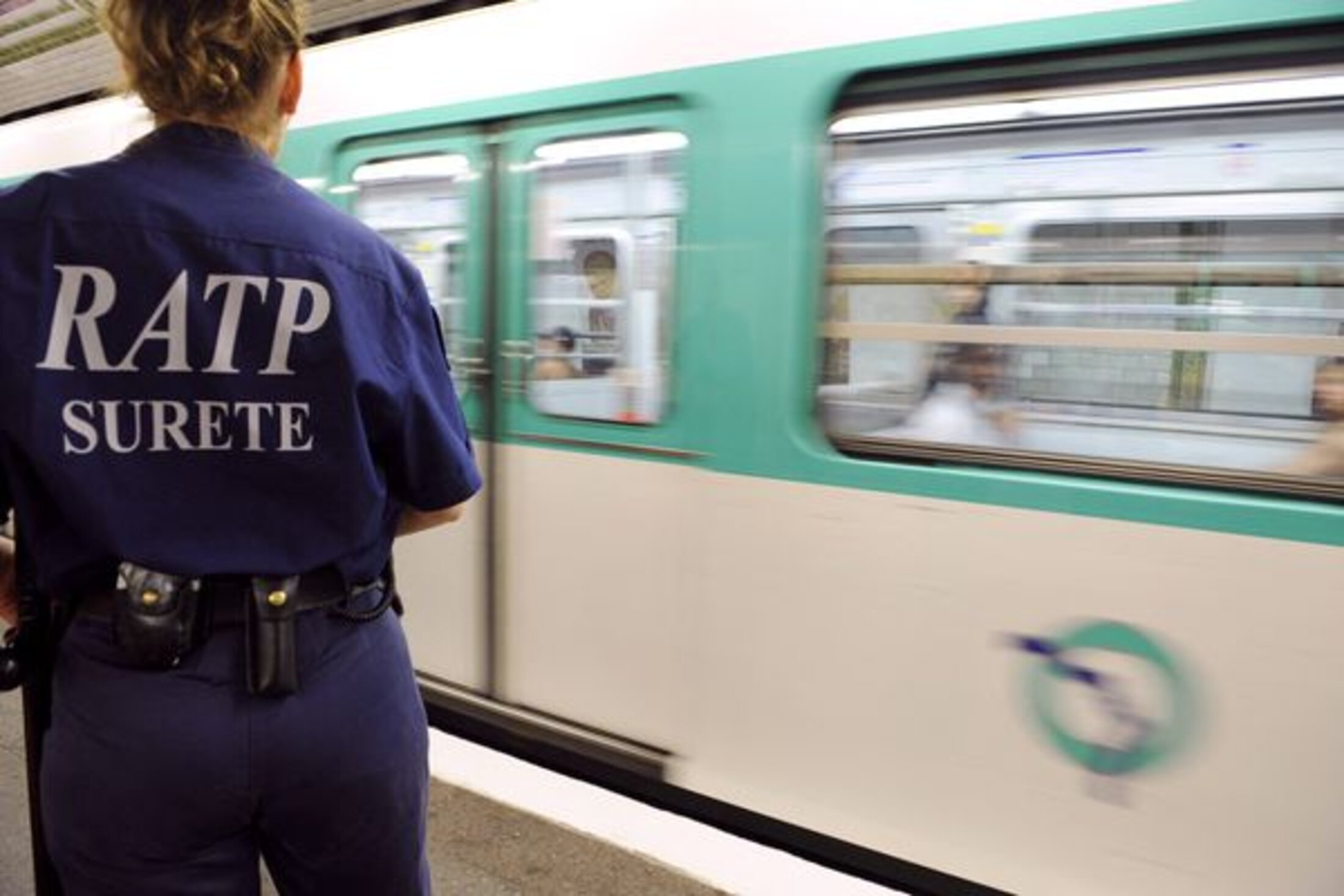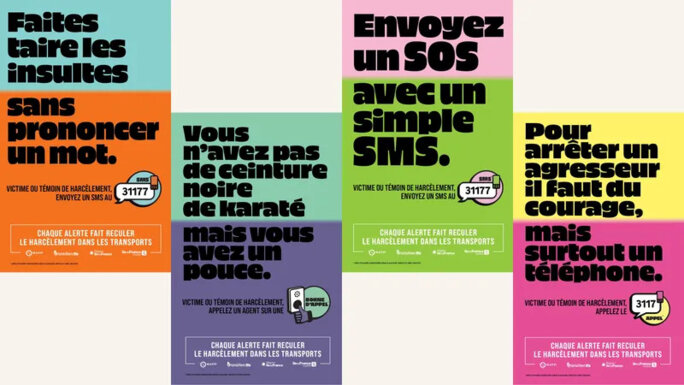
Agrandissement : Illustration 1

Article source: "Harcèlement dans les transports : une campagne pour faire connaître le 3117" by Sophe Béchir, France3 (FranceInfo), 07/11/2022.
Originally launched in Paris and the wider Île-de-France region in 2010, after a young girl was raped in a local RER train, the emergency number 3117 has since been extended to the whole of France. Despite having existed for twelve years, this emergency number is still underused, especially to report gender-based violence in public transport.
“Many women are hesitant to use this number to report sexist harassment. They always think that it should only be used in case of a heart attack,” says Christiane Dupart, vice president of the French federation of transport users' associations (FNAUT).
POSTER CAMPAIGN
The Parisian transport authority RATP, along with the national rail company the SNCF and the Île-de-France regional authority, have launched a new public information campaign. From Monday 7 November, passengers will be able to see posters on the walls of their stations with messages like, “If you want to report sexual harassment, you’re not out of options. Here are 5 solutions.”

Agrandissement : Illustration 2

In stations, users can report sexual offences to transport workers or via an intercom. In addition to the emergency number 3117, passengers have been able since 2015 to text 31 177, and an app “Alerte 3117” was also launched in June 2016. These services allow victims to get in touch with an SNCF call centre operator 24 hours a day, seven days a week. In case of an emergency, the operator will locate the victim and alert security.
CALLS FOR FURTHER ACTION
Dupart says that progress has been made in the fight against harassment, but she would like to see further measures put in place. “There could be public announcements as a reminder that sexual harassment will be prosecuted, in the same way that warnings about pickpockets are given on the metro.”
In 2021, there were 905 police reports of sexual harassment on public transport in the Île-de-France region.
GETTING OFF THE BUS BETWEEN STOPS
The local authority is currently implementing a trial measure to reduce the risk of gender-based harassment and sexual assault: the ability to get off the bus between stops after 10 p.m.
This measure was tested for the first time on 4 bus services in the Seine-Saint-Denis département north of Paris in 2018. Passengers can ask the driver to drop them off as close as possible to their destination. It has been in place since 9 May 2022 on several RATP bus routes, and also on some night services.
Translated by Maria Bou Gharios, Zénaïde Essammah and Olivia Pritchard.
Editing by Sam Trainor.



